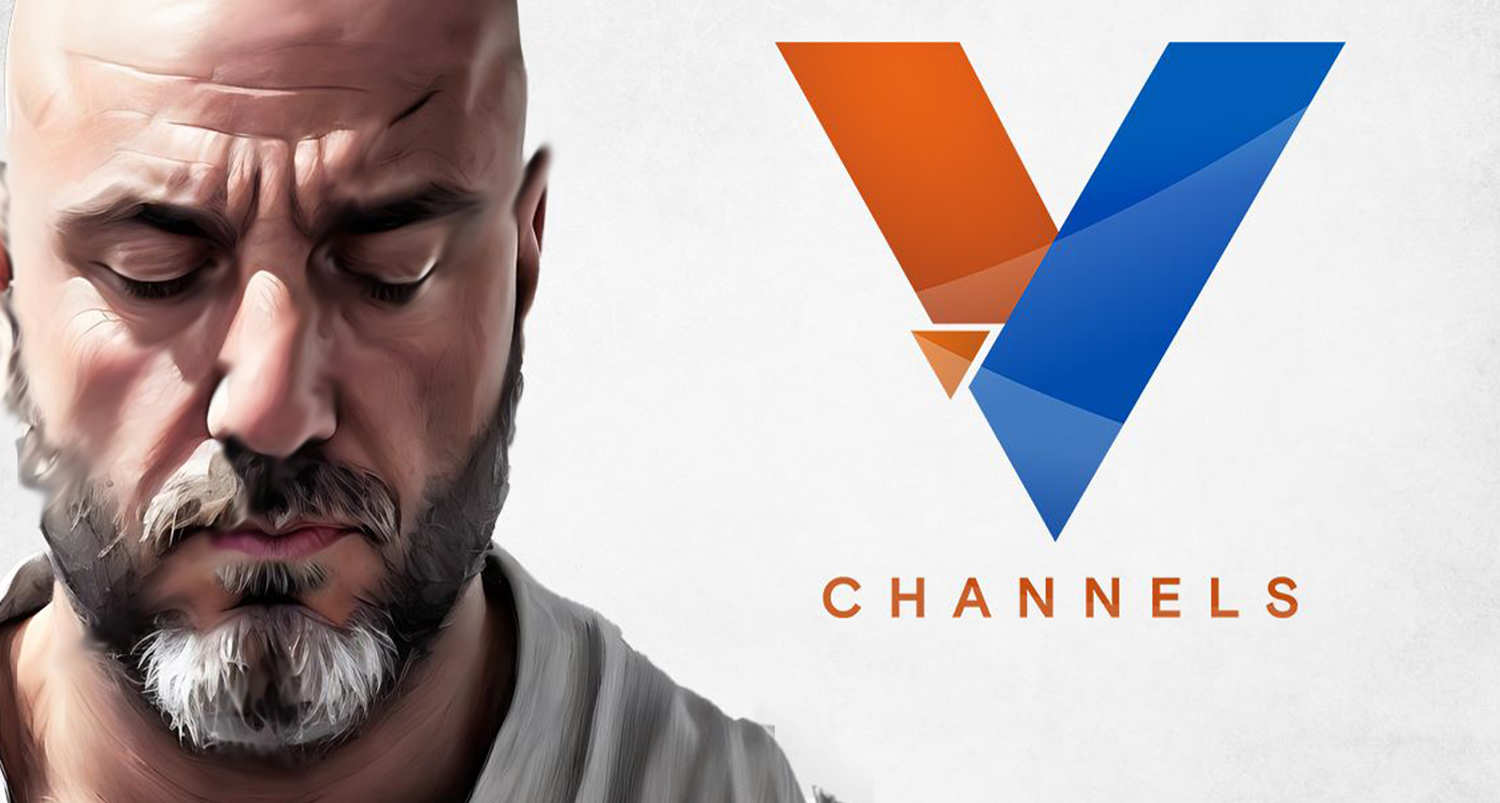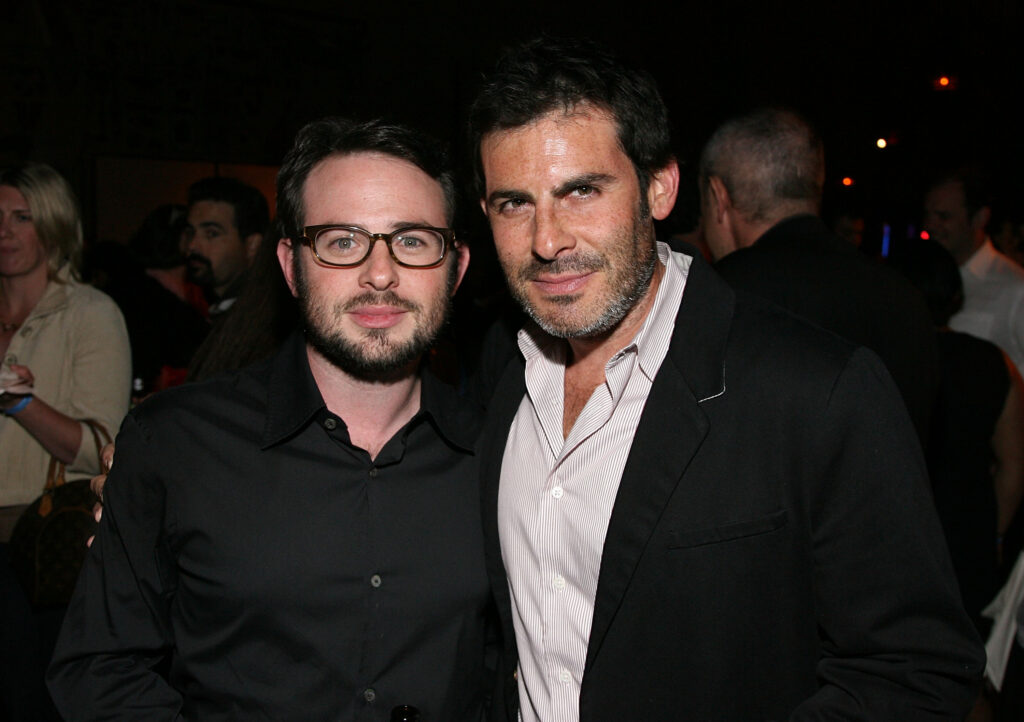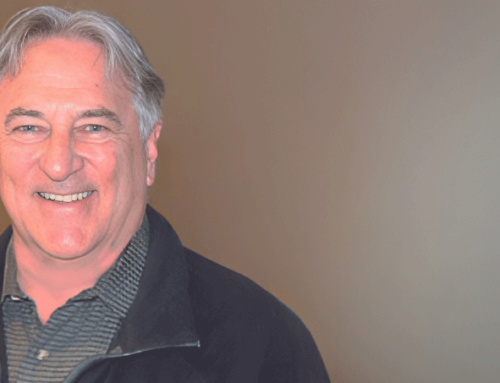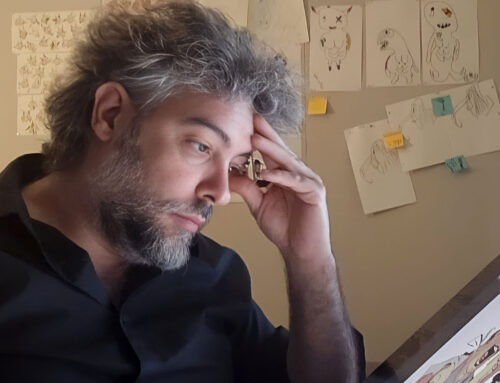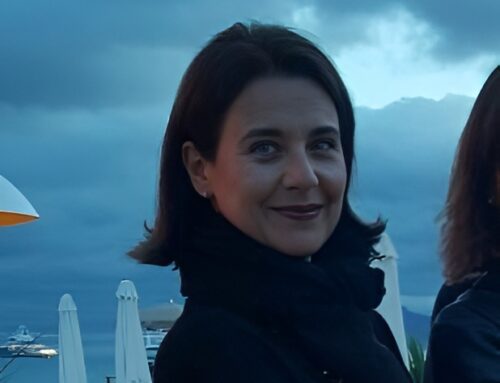In Conversation with Niccolo Messina, Founder of V Channels
Niccolò Messina doesn’t love movies, “They put my brain on pause.” He doesn’t appreciate Hollywood, “It is always behind.” Still, Italian entrepreneur Niccolò Messina may hold the key to preserving independent cinema in the streaming age. With his groundbreaking platform, VChannels, he has established a thriving network of 15 YouTube AVOD-specialized media, boasting an impressive 300 million monthly views and a dedicated audience of 120 million. Messina’s impact on the industry cannot be ignored.
Mario Niccolò Messina came to Hollywood four years ago and quickly decided to take advantage of his profound ability to read data. “My expertise lies in the field of telecommunication. My experience on reading internet data lead me to this.” I have noticed this massive amount of searches on platforms like Google of keywords, such as ‘full movies’, ‘action movies’ and ‘horror movies,’ hiding behind the will to search for movies on illegal sites.
Q: Was it your idea to introducing a legal pathway to access this content?
Messina: Exactly. I made a straightforward reasoning: Google tends to suggest titles when a particular keyword is pointed. If you do so, the first result is a video on YouTube. So, I guessed it would be YouTube to suggest my channels directly.
Q: And that happened. You utilized a widely renowned platform to conduct your business.
Messina: I did, and it worked. YouTube was a platform incredibly untapped by the cinema world. I used it. YouTube directly suggested my channels when somebody was looking for a title. This simple idea won because I didn’t spend one dime on marketing.
Q: They were looking for a film, found it, and remained tied to your platform.
Messina: Exactly. The 35 million subscribers we have today were all obtained, as they say, on an organic level.
Q: YouTube still faces skepticism from the industry, doesn’t it?
Messina: It is for two reasons. First, because it was the site of illegal uploads for 15 years, it was the enemy for many years. The second reason is that YouTube is a user-centric platform. It is the user who must upload the movie. Activity is needed here. You have to write the title, you have to write the description, you have to write the tags, make the poster, and you have to upload it at a specific time. In short, there is a management activity that distributors and producers don’t know how to do.
Q: Tell us about the business model of your channels in the AVOD ecosystem.
Messina: It is an AVOD (ad-based video on demand) model that shares revenues with distributors and manufacturers. YouTube puts the ads, I collect the money from YouTube, and I split it fifty-fifty with the producers and distributors of the film. On top, I increase the film’s visibility by dubbing it in five languages (Spanish, Portuguese, Filipino, and Indonesian) without applying any cost fee, and, unlike platforms like Roku or Tubi, I share revenues of the dubbed movies with distributors.
Q: Is dubbing still relevant in the world of movies? Many discussions revolve around the preference of young people for watching films in their original language.
Messina: This is so naive. Many kids speak English today, obviously much more than our generation. Video games, multiplayer, and the globalized world helps with this. But enjoying a film in your native language is another story. The sixth most searched phrase on Google is “Peliculas Completas En Espanol Latino.” Spanish is one of the most spoken languages in the world. As a result, this statement is not only naive. It’s just false. People want to see content in their native language.
Q: Let’s talk about the competition. Are Netflix and the other SVOD (Subscription-based Video On Demand) platforms in a crisis?
Messina: They are not. They have reached their peak user base, as happened before with the cable. Simple like that. There was an explosion during the Covid, but the number of platforms also multiplied. Only a few people can afford more than one subscription. They are the big spenders, but you can’t build a line of business on them. Then there are those for whom 10$ makes the difference in the family budget and prefer free proposals such as Tubi, Roku, or Pluto.
Q: Are you suggesting that there is an excess of SVOD platforms?
Messina: Yes, and the quality is going down a lot. The world is settling where SVOD becomes a premium; therefore, AVOD will become the new commercial television.
Q: Your business model has thrived to the point of venturing into movie production.
Messina: I noticed my distributors were getting 10% of their total revenue from YouTube. Why not have the other 90%? On top of that, I realized that most international platforms have low-budget independent content. So having the platform and reaching 120 million users, I started producing: how do I produce? By exploiting the data collected from YouTube because YouTube is the only platform in the world that has research as its basis, research leads to critical data, which other platforms don’t have. This allows me to have the info to produce successful indie movies.
Q: Which Hollywood doesn’t do anymore?
Messina: Hollywood is always behind. It cannot read the data, and it doesn’t risk its money until unexpected luck strikes and, for example, The Blair Witch Project comes out and has a huge success. After that, the next ten years of cinematographic production will follow that lead. I read the data, know what people ask, and produce consequently.
Q: Is this why you are producing documentaries about Aliens?
Messina: This is a funny story. I noticed an uptick in sci-fi alien-movie demand, so I bought a library of alien documentaries, and they blew up. Therefore, I built a team of guys in Italy and Germany who make ten documentaries every month and give priority to the content of the stories. Although I don’t believe in Aliens, I respect those who want to document, and this has led to the creation of a series of microbudget financed documentaries that have been viewed more than 30 million times.
Q: You’re talking about Microbudget financing. Is it a way of giving opportunities to young people, the emerging and the independent, while maintaining a democratization of the process with revenue sharing?
Messina: Let’s face it. Today, for a film to achieve extraordinary numbers, it needs a budget of 250/300 million. If you have this kind of budget, do you hand it to a kid fresh out of school? If five million-budget movies are no longer produced, how do you create the next generation of talent? You need to make low-budget movies that use innovative tools – like artificial intelligence, for example – to get the results that movies carry. We are currently producing a movie called Dark Parasite. Shot with an Italian production from Lucca (Extreme video, by Luca Boni and Marco Ristori with special effects by Alessandro Cracolici). They were able to recreate this alien, spending nothing exploiting the advantages of artificial intelligence, new software, etc. We are making a sci-fi that would have cost $4 million five years ago. This way, the kids have the opportunity to make themselves known and to show what they can do.
Share:
Niccolò Messina doesn’t love movies, “They put my brain on pause.” He doesn’t appreciate Hollywood, “It is always behind.” Still, Italian entrepreneur Niccolò Messina may hold the key to preserving independent cinema in the streaming age. With his groundbreaking platform, VChannels, he has established a thriving network of 15 YouTube AVOD-specialized media, boasting an impressive 300 million monthly views and a dedicated audience of 120 million. Messina’s impact on the industry cannot be ignored.
Mario Niccolò Messina came to Hollywood four years ago and quickly decided to take advantage of his profound ability to read data. “My expertise lies in the field of telecommunication. My experience on reading internet data lead me to this.” I have noticed this massive amount of searches on platforms like Google of keywords, such as ‘full movies’, ‘action movies’ and ‘horror movies,’ hiding behind the will to search for movies on illegal sites.
Q: Was it your idea to introducing a legal pathway to access this content?
Messina: Exactly. I made a straightforward reasoning: Google tends to suggest titles when a particular keyword is pointed. If you do so, the first result is a video on YouTube. So, I guessed it would be YouTube to suggest my channels directly.
Q: And that happened. You utilized a widely renowned platform to conduct your business.
Messina: I did, and it worked. YouTube was a platform incredibly untapped by the cinema world. I used it. YouTube directly suggested my channels when somebody was looking for a title. This simple idea won because I didn’t spend one dime on marketing.
Q: They were looking for a film, found it, and remained tied to your platform.
Messina: Exactly. The 35 million subscribers we have today were all obtained, as they say, on an organic level.
Q: YouTube still faces skepticism from the industry, doesn’t it?
Messina: It is for two reasons. First, because it was the site of illegal uploads for 15 years, it was the enemy for many years. The second reason is that YouTube is a user-centric platform. It is the user who must upload the movie. Activity is needed here. You have to write the title, you have to write the description, you have to write the tags, make the poster, and you have to upload it at a specific time. In short, there is a management activity that distributors and producers don’t know how to do.
Q: Tell us about the business model of your channels in the AVOD ecosystem.
Messina: It is an AVOD (ad-based video on demand) model that shares revenues with distributors and manufacturers. YouTube puts the ads, I collect the money from YouTube, and I split it fifty-fifty with the producers and distributors of the film. On top, I increase the film’s visibility by dubbing it in five languages (Spanish, Portuguese, Filipino, and Indonesian) without applying any cost fee, and, unlike platforms like Roku or Tubi, I share revenues of the dubbed movies with distributors.
Q: Is dubbing still relevant in the world of movies? Many discussions revolve around the preference of young people for watching films in their original language.
Messina: This is so naive. Many kids speak English today, obviously much more than our generation. Video games, multiplayer, and the globalized world helps with this. But enjoying a film in your native language is another story. The sixth most searched phrase on Google is “Peliculas Completas En Espanol Latino.” Spanish is one of the most spoken languages in the world. As a result, this statement is not only naive. It’s just false. People want to see content in their native language.
Q: Let’s talk about the competition. Are Netflix and the other SVOD (Subscription-based Video On Demand) platforms in a crisis?
Messina: They are not. They have reached their peak user base, as happened before with the cable. Simple like that. There was an explosion during the Covid, but the number of platforms also multiplied. Only a few people can afford more than one subscription. They are the big spenders, but you can’t build a line of business on them. Then there are those for whom 10$ makes the difference in the family budget and prefer free proposals such as Tubi, Roku, or Pluto.
Q: Are you suggesting that there is an excess of SVOD platforms?
Messina: Yes, and the quality is going down a lot. The world is settling where SVOD becomes a premium; therefore, AVOD will become the new commercial television.
Q: Your business model has thrived to the point of venturing into movie production.
Messina: I noticed my distributors were getting 10% of their total revenue from YouTube. Why not have the other 90%? On top of that, I realized that most international platforms have low-budget independent content. So having the platform and reaching 120 million users, I started producing: how do I produce? By exploiting the data collected from YouTube because YouTube is the only platform in the world that has research as its basis, research leads to critical data, which other platforms don’t have. This allows me to have the info to produce successful indie movies.
Q: Which Hollywood doesn’t do anymore?
Messina: Hollywood is always behind. It cannot read the data, and it doesn’t risk its money until unexpected luck strikes and, for example, The Blair Witch Project comes out and has a huge success. After that, the next ten years of cinematographic production will follow that lead. I read the data, know what people ask, and produce consequently.
Q: Is this why you are producing documentaries about Aliens?
Messina: This is a funny story. I noticed an uptick in sci-fi alien-movie demand, so I bought a library of alien documentaries, and they blew up. Therefore, I built a team of guys in Italy and Germany who make ten documentaries every month and give priority to the content of the stories. Although I don’t believe in Aliens, I respect those who want to document, and this has led to the creation of a series of microbudget financed documentaries that have been viewed more than 30 million times.
Q: You’re talking about Microbudget financing. Is it a way of giving opportunities to young people, the emerging and the independent, while maintaining a democratization of the process with revenue sharing?
Messina: Let’s face it. Today, for a film to achieve extraordinary numbers, it needs a budget of 250/300 million. If you have this kind of budget, do you hand it to a kid fresh out of school? If five million-budget movies are no longer produced, how do you create the next generation of talent? You need to make low-budget movies that use innovative tools – like artificial intelligence, for example – to get the results that movies carry. We are currently producing a movie called Dark Parasite. Shot with an Italian production from Lucca (Extreme video, by Luca Boni and Marco Ristori with special effects by Alessandro Cracolici). They were able to recreate this alien, spending nothing exploiting the advantages of artificial intelligence, new software, etc. We are making a sci-fi that would have cost $4 million five years ago. This way, the kids have the opportunity to make themselves known and to show what they can do.



